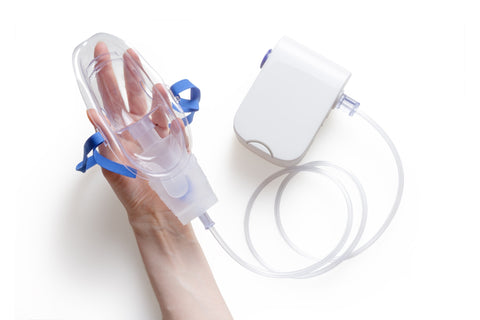
We may breathe it everyday, but people rarely pause to consider how important the quality of our air really is.
Each day, local governments across the country evaluate the atmospheric purity in their jurisdictions using the Air Quality Index. True to its name, the AQI assigns any area a number that places it somewhere on a spectrum between polluted and clean.
That number tells us about any health risks connected to an area’s given air quality, aiming in particular, to enlighten people about potential health risks after hours or days of exposure to polluted air.
But how many people regularly check the AQI? Despite the potentially harmful air that surrounds us, we breathe on obliviously, exerting ourselves or spending long days outdoors without truly knowing the dangers that face us. Knowledge is power, so make the effort to learn what lurks in the air around you and how to protect yourself from contamination.
AQI IQ

The Clean Air Act requires that the EPA measure five major air pollutants: carbon monoxide, nitrogen oxide, sulfur dioxide, ground-level ozone, and particle pollution (or particulate matter). In North America, airborne particles and ground-level ozone are the greatest threats to human health.
The EPA had to create a standardized national air quality criteria for the offending pollutants in order to guard public health. As a result, the AQI was born.
The exact measures of the AQI range from zero to 500, zero being crystal clear air fit for a newborn’s lungs. As the AQI number rises, air pollution and health risks do as well.
The EPA has established an AQI level of 100 as the national definition of a “polluted” atmosphere, and if a reading goes above that number, the air can be harmful to sensitive immune systems. When the number reaches 200, cities are obligated to issue warnings to inhabitants.
Inside Job

Now that we know a little more about air quality at large, let’s take a look at the situation in the house. Indoor air quality is multidetermined, and it's important to keep tabs on it to avoid harmful repercussions, according to How Stuff Works.
Although the calculations that go into an AQI can be complicated, its meaning is simple: the higher the pollution, the more dangerous your air is.
So what could be the cause of your home’s dirty air? Anything from pet dander to tobacco smoke, as Colorado State University reports. If you feel significantly fresher outside, it’s probably time to scour the house for the three worst enemies of air quality.
Mold and mildew tend to happen out of sight and out of mind, growing on building material, furniture, heating and cooling systems, and wet carpets, to name just a few suspicious spots. Although innocuous in name, these spores are not to be trusted.
A colorless and odorless gas, carbon monoxide is a silent killer. When incomplete combustion occurs in household items like stoves, furnaces, water heaters, and fireplaces, the dangerous fume takes flight, entering your lungs and impeding the flow of oxygen into your body.
Extended exposure has lethal consequences, and only a carbon monoxide detector can alert you when the gas rises to risky levels.
Similarly, the gas radon exists without color or odor and enters unnoticed. The gas naturally lifts from soil and penetrates the home via the drainage system, cracks in the walls, and the floors of the basement, as well as through dirt floors. The invisible gas is a major perpetrator of lung cancer.
Catch your Breath

Are you holding your breath yet? Even though there’s no way of knowing the exact level of pollutants in your home environment, there are ways to keep it breezy. Mold and mildew can be cleaned, and detectors can protect us from carbon monoxide and radon.
For everything else, Rabbit Air is here to help you catch your breath amid the air quality stresses. Their air purifiers quietly remove 99.97% of allergens and pollutants without further fallout. So breathe a sigh of relief: your home and office just got a little less toxic.




